Search Images
Browse Content (p. 985)
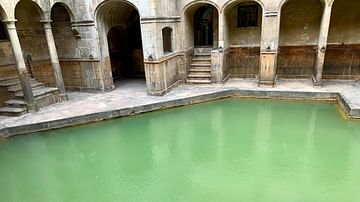
Image
Roman Sacred Spring
The hot water- sacred spring at Aquae Sulis, now Bath. The goddess Sulis Minerva was seen as the embodiment of the sacred water in the Roman era (1st- early 5th century CE).

Image
Goddess Luna Pediment
Pediment from the temple of Luna, the Roman moon goddess. The temple was in use during the Roman era in Britain (1st- early 5th century CE). The carving from the pediment at Luna’s temple is still preserved and can be viewed in the Roman...
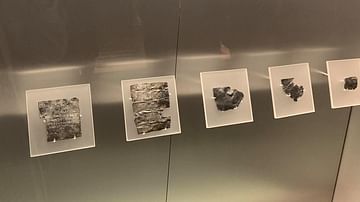
Image
Roman Curse Tablets
Curse tablets from the Roman era in Britan (1st- early 5th century CE), containing messages to the goddess Sulis Minerva. On display in the Roman Baths Museum in Bath, UK.
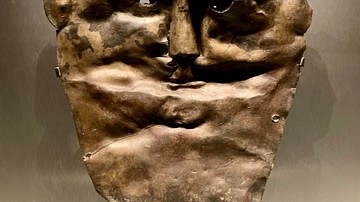
Image
Roman Religious Mask - Bath
Religious mask made of tin from the Roman baths complex in Bath. Probably used by a priest during religious processions in Roman Britain (1st - early 5th century CE).
Roman Baths Museum, Bath, UK.
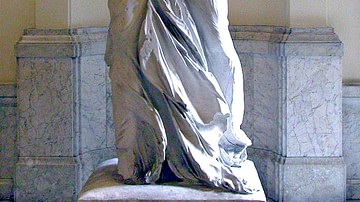
Image
Plaster Copy of the Nike
Plaster copy of the Nike of Samothrace in old setting at the Allard Pierson Museum, standing straight without wings (APM 16.006).
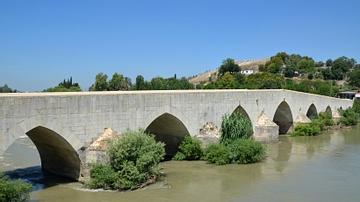
Image
Roman Bridge at Mopsuestia
Roman bridge over the river Pyramus, built during the reign of Constantius II. It was restored by Justinian I in the 6th century CE and renovated in 743 and 840 CE. Mopsuestia, Turkey
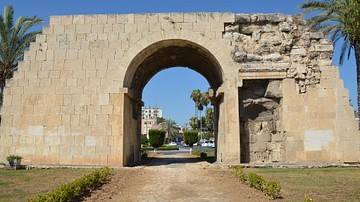
Image
Cleopatra's Gate, Tarsus, Cilicia
Cleopatra's Gate, Tarsus, Cilicia
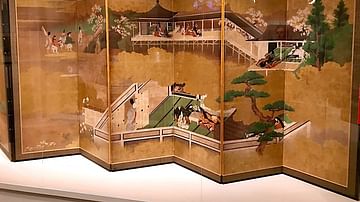
Image
A Japanese Folding Screen
A Japanese folding screen or byobu, used to sperate room space in traditional homes. This example shows a scene from the Tale of Genji. H. 153.4 cm x W. 349.9 cm. 18th century CE. (Asian Art Museum, San Francisco)
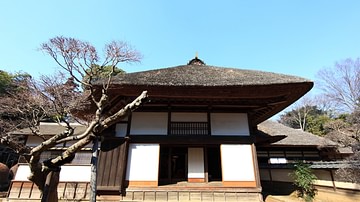
Image
Exterior of a Traditional Japanese House
The exterior of a traditional Japanese house. Sakano family's residence, Jousou-shi (city) Ibaraki-ken (Prefecture), Japan.
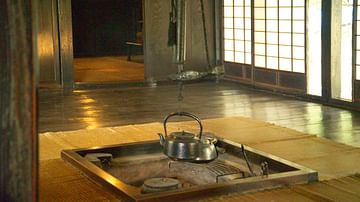
Image
Traditional Japanese Hearth
A traditional hearth in a Japanese home.